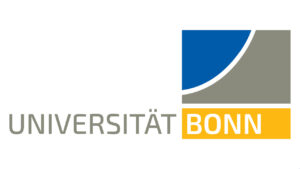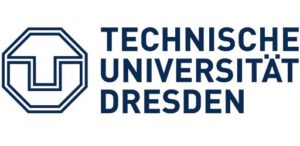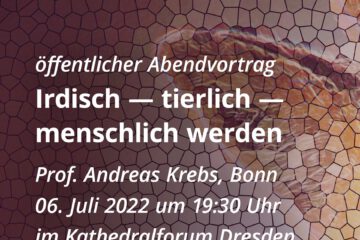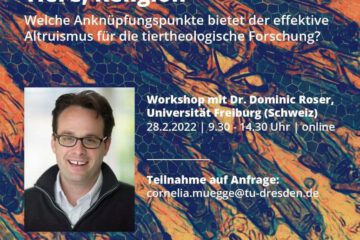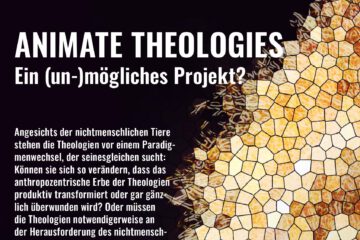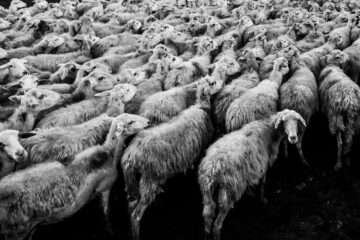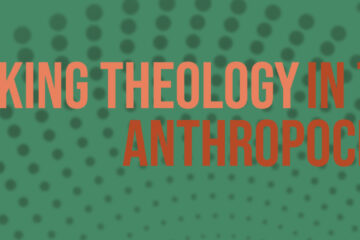The time of radical distinctions is coming to its end: NatureCultures and HumAnimals are emerging and call for a radical revision of human exceptionalism. What is the role of religions in this critical process? How did they have a part in the emergence of hegemonic ideas and practises which devaluate animals and other living beings? What do religions still provide to stabilise this devaluation? And which transformational potentials can they contribute to the dawn of a de-centered multi-species world?
At least so-called high religions seem to be deeply interwoven with the attempted subjugation of nature. The relationships between humans and other living beings are thought of and practiced as ones of hierarchy. Other animals are deprived of their freedom and instrumentalised for human purposes. Landscapes and ecosystems are radically reshaped according to human ideas. These processes do not just stand on their own, but are integral parts of a sweeping domination project that also includes the power of humans over humans: Women are supposedly closer to the animal and libidinal than men and must therefore be controlled. This is held even more true for slaves, who are frequently subjected to exactly the same methods of discipline and torture as domesticated animals. Moreover, especially but not only in Christian contexts, non-heterosexual behaviours are qualified as animalistic in order to justify their suppression.
Thus religions are often closely intertwined with anthropocentrism – which is certainly also a sexism since „anthropos“ is primarily a heterosexual male, and a racism since „anthropos“ is primarily white, and a colonialism since „anthropos“ is primarily the bearer of „Western“ capitalist culture. But religious ideas have also inspired resistance against sexism, racism, and colonialism. They likewise contain potentials for opposing and overcoming human exceptionalism, which has definitely proven to be a dead end in the age of climate catastrophe and species extinction. It is crucial, therefore, to uncover the productive resources of religions in order to meet the current ecological challenges and to set out for more liberated and more related multi-species futures.












